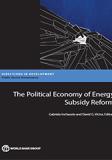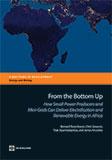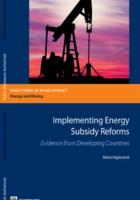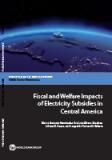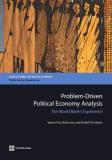Publications
Poorly implemented energy subsidies are economically costly to taxpayers and damage the environment through increased emissions of greenhouse gases and other air pollutants. Energy subsidies also create distortive price signals and result in higher energy consumption or production as well as barriers to entry for cleaner energy services. Subsidies to consumption, by lowering end-use prices, can encourage increased energy use and reduce incentives to conserve energy efficiently. Universal energy-price subsidies tend to be regressive because benefits are conditional upon the purchase of subsidized goods and increase with expenditure. This report selected a representative sample of case studies in 20 developing countries, based on a number of criteria, including the countries' level of development (and consumption) and energy dependency (distinguishing between net energy exporters and importers). The case studies have been selected on the hypothesis that energy dependence and per capita income appear to be the key drivers of subsidy reforms in developing countries. Of the two criteria, energy dependence is expected to be the most powerful determinant of the choice to engage in energy reforms, whereas the level of per capita income may pose different challenges in relation to the distributional impact of such reforms on the poor. Energy net importers are expected to have more incentives to undertake energy subsidy reforms when the fiscal burden of such subsidies reaches a significant percentage of Gross Domestic Product (GDP), particularly when there are already macro unbalances related to high thresholds of public budget and debt. Low- and middle-income countries are expected to display a larger impact of energy subsidy reforms on consumption. This impact reflects the opportunities to influence future behavior rather than current consumption trends because of inertia, vested interests, and the presence of affordability issues.
Vagliasindi, Maria. 2013. Implementing Energy Subsidy Reforms: Evidence from Developing Countries. Directions in Development; Energy and Mining. Washington, DC: World Bank. © World Bank. License: CC BY 3.0 IGO. https://openknowledge.worldbank.org/handle/10986/11965
